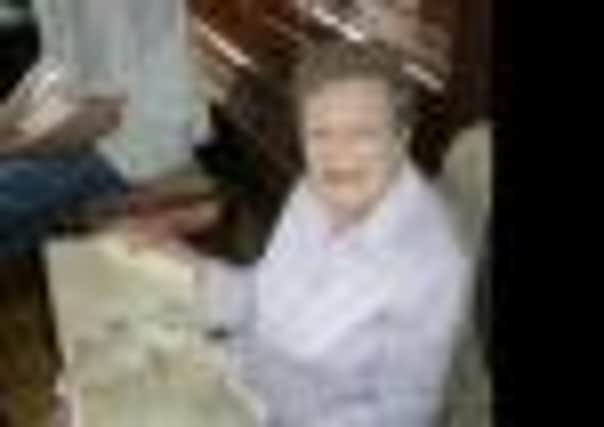Obituary: Peggy McClements, teacher and translator


Catriona Margaret McClements, always known as Peggy, was a major figure in teaching and thereby preserving her beloved Gaelic language. She herself was the first woman to graduate with First Class Honours in Celtic at the University of Edinburgh – in 1938 – and was the last surviving student of William J Watson, the highly influential professor of Celtic during the first half of the 20th century, who spent his life teaching and protecting Gaelic. Peggy went on to transcribe countless Gaelic tapes for the School of Scottish Studies (now part of Celtic and Scottish Studies at her old university), helping ensure that the language would endure despite a dwindling population of those born to the beauty of its sounds and nuances.
Like her mentor, Watson, she became crucial to the language’s survival and development. And like him, she spent her life ensuring that the language would not only survive but prosper.
Advertisement
Hide AdAdvertisement
Hide AdLong after retirement, despite her age, Peggy McClements was a key figure in preparing valuable Gaelic recordings for digitisation and online use, which she realised could be crucial for the language’s prosperity, not only in Scotland but worldwide.
Before that, she was personally responsible for teaching Gaelic to several generations of children, young people and interested students from around the world. “Language teachers and active speakers of a minority language are crucial to its survival and development,” John Macleod, a friend and fellow member of Edinburgh’s Gaelic community, told The Scotsman.
“People like Peggy are immensely important in helping to preserve Gaelic. All in all, she made a very significant contribution to the preservation of her native language. She was a lovely lady with a warm smile and a Gaelic heart.”
Catriona Margaret Lowe was born on 2 July, 1916 in the schoolhouse at Whitehill, New Deer, Aberdeenshire, where her father, Donald Neil Lowe, widely known locally as DN, was the schoolmaster.
Her mother, Margaret (née MacLean) died when Peggy was only a few weeks old and she was brought up by her maternal grandparents on the Outer Hebridean island of South Uist, making her bilingual in English and Gaelic from an early age.
She was seven when her father remarried and moved to Tobermory on the Isle of Mull, where he became headmaster of Tobermory School and later the town provost. Peggy became extremely close to her “new mother” Catherine Nicholson, who died in the mid-1960s.
After primary and secondary schooling at Tobermory, she commuted by ferry to the mainland to study and later teach at Oban High School. She was only 17 when she moved, wide-eyed, to the “big city” – Edinburgh – to join Professor Watson’s Celtic class and become the university’s first female First Class Honours graduate in the subject.
Formally, her degree was in Celtic languages and literature, which included both Scottish and Irish variations. Watson, who would die in 1948, knew immediately that she would become a bearer of the Gaelic torch.
Advertisement
Hide AdAdvertisement
Hide AdHe wrote, on 24 July, 1939: “Miss Lowe is in all respects one of the best students of my 24 years’ experience.”
While still a student, Peggy met her future husband, Robert McClements, at a Highland concert and dance in the St Andrew’s Halls in Glasgow, where he had just graduated in medicine from Glasgow University. She did teacher training at Jordanhill College in Glasgow and was on a college-swap visit to Brittany in 1939 when war loomed.
She got back to Scotland two days before war was declared and became a teacher of Gaelic and French at Oban High School.
She married Robert, who served as a doctor in the Royal Army Medical Corps (RAMC), in 1941 and they spent most of their lives in the Highlands andIslands, where he practised as a doctor and they raised their family.
She taught at Northton on the Isle of Harris, later at Lochaline in Morvern and coached children to take part in Mods – festivals of Gaelic culture – in Strontian and Oban.
After Robert suffered health problems, the family moved to Craiglockhart in Edinburgh, where she taught at both South Morningside and Oxgangs primary schools while giving one-to-one tuition in Gaelic to pupils from the city’s private schools.
After Robert died in 1977, she taught Gaelic at the University of Edinburgh’s Gaelic Summer School, attended by students from around the world, and became a dedicated volunteer transcriber of old Gaelic tapes for the university’s School of Scottish Studies.
In 1987, she bought a retirement flat at Liberton and immediately made new friends, many through the Liberton kirk. Having coached the Gaelic choir at Tollcross primary school, one of her greatest delights was to see one of the school’s pupils, her granddaughter Fiona, take up the Gaelic torch.
Advertisement
Hide AdAdvertisement
Hide Ad“Our mum loved music,” her son Bobbie told The Scotsman. “In her younger days she played the piano and the church organ. She enjoyed listening to Gaelic songs and reading, and was always keen to get hold of any new Gaelic books, though she could be quite critical if she felt the Gaelic wasn’t up to scratch.”
Peggy McClements died in the Western General Hospital, Edinburgh. She is survived by her sons Bobbie, David and Peter, daughter Patricia, 12 grandchildren, ten great-grandchildren and one surviving brother, William. A former colleague wrote on a website: “A cuid de Phàrras dhi (May she have her portion of paradise)”.